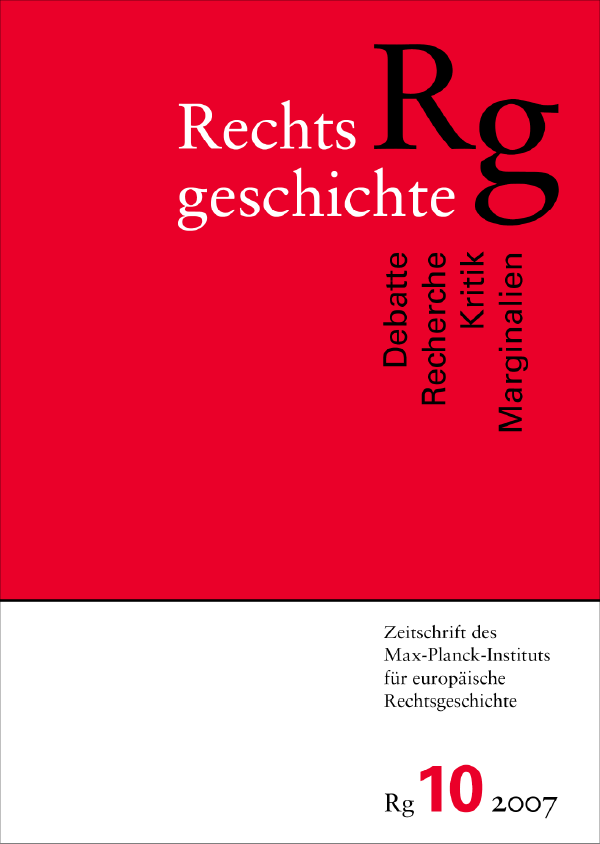Ex scientia et arte sua testificatur
A propos de la spécificité du statut de l’expert dans la procédure judiciaire médiévale
DOI:
https://doi.org/10.12946/rg10/127-135Abstract
From the very beginning of Roman-canonist legal science, the expert has a specific status, not to be confused with the one of the witness. This is obvious from the way his statement is presented: it can stand alone; it can also be given in public. Why indeed impose secrecy upon an expert when he can (and probably will) consult with his colleagues about his conclusions and when, knowing he is to testify, everybody, including witnesses and litigants, has the opportunity to learn beforehand what the expert will present to the judge? Moreover, why should a second examination be demanded when the scientific nature of its content presupposes on the one hand very precise observation, and on the other trust in its origin? Trust is also what determines the second aspect of the expert’s specific status, which is obvious from the content of his statement and a direct consequence of his function’s essence. Where witnesses areasked to account only for facts they know from their senses (as indicated by the causa dicti), an expert is at liberty to infer from the facts observed whatever his previous and specialized knowledge allows him to: in this respect, he is more of a judge than of a witness.
Downloads
Veröffentlicht
Zitationsvorschlag
Ausgabe
Rubrik
Lizenz
Copyright (c) 2007 Autor/in

Dieses Werk steht unter einer Creative Commons Namensnennung - Nicht-kommerziell - Keine Bearbeitung 3.0 International -Lizenz.





